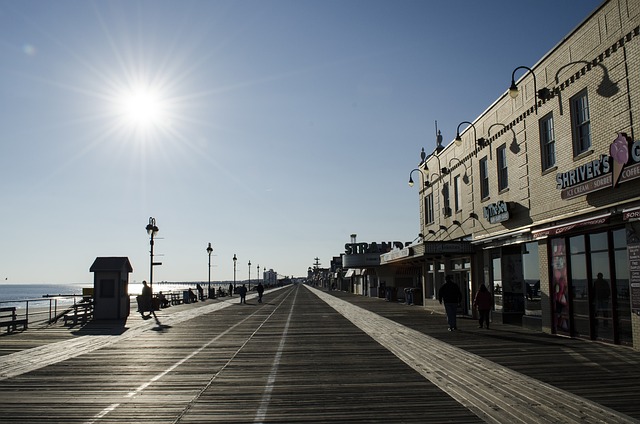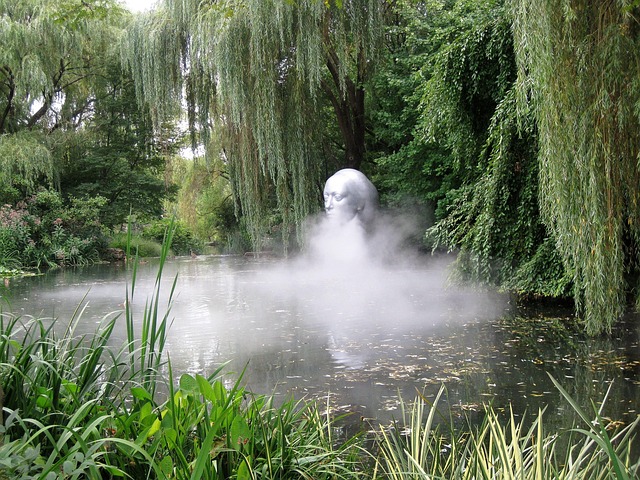Ellis Island, situated in Jersey City, NJ, is a historic gem and key cultural landmark of Hudson County. As a bustling immigration hub from 1892 to 1954, it welcomed 12 million immigrants, shaping the diverse fabric of the county. Strategically located at the Hudson River's mouth, Ellis Island offers a unique glimpse into America's immigrant history, preserving stories of hope and resilience through its museum. The island's modern developments blend with historic architecture, attracting visitors for its stunning city views and rich cultural tapestry in Hudson County, NJ.
Discover the enchanting history of Ellis Island, nestled in the heart of Jersey City, NJ, within the captivating landscape of Hudson County. Once a bustling gateway for millions of immigrants seeking new beginnings, this iconic island has evolved into a vibrant cultural hub. This article delves into Ellis Island’s rich past, its pivotal role in shaping the region’s migration narrative, and its architectural transformation while exploring the island’s current accessibility and community impact.
- A Historical Overview of Ellis Island in Jersey City
- The Significance of Ellis Island in Hudson County's Migration Story
- Architecture and Design: Exploring the Island's Past and Present
- Accessing and Visiting Ellis Island Today: What to Expect
- Community and Cultural Impact: How Ellis Island Shapes Jersey City's Identity
A Historical Overview of Ellis Island in Jersey City

Ellis Island, located in Jersey City, NJ, is a significant historical site that played a pivotal role in shaping the demographic landscape of Hudson County. This former federal immigration station operated from 1892 to 1954, welcoming millions of immigrants seeking a new life in America. Situated strategically on Bedlow’s Island at the mouth of the Hudson River, Ellis Island became an iconic gateway to the United States, particularly during the late 19th and early 20th centuries.
As one of the busiest ports in the world, New York Harbor welcomed immigrants from diverse backgrounds, cultures, and countries. Over its operational period, Ellis Island processed approximately 12 million immigrants, facilitating their entry into the United States and their subsequent integration into Hudson County communities. The island’s rich history includes stories of hope, resilience, and perseverance for countless individuals and families who embarked on a new chapter in their lives.
The Significance of Ellis Island in Hudson County's Migration Story

Ellis Island, located just off the coast of Jersey City, NJ, in Hudson County, stands as a powerful symbol of America’s immigrant heritage. For over six decades, it served as the nation’s primary gateway for immigrants seeking new opportunities and a better life. In Hudson County, the impact of Ellis Island is profound, reflecting the diverse tapestry woven by generations who called this region home.
As a bustling hub for migration, Ellis Island facilitated the arrival of folks from every corner of the world, shaping the cultural landscape of Hudson County. The stories of these immigrants—their struggles, triumphs, and contributions—are indelibly etched into the history of the area. Today, exploring Ellis Island offers a unique chance to delve into Hudson County’s rich heritage and appreciate the resilience and diversity that define its identity.
Architecture and Design: Exploring the Island's Past and Present

Ellis Island, situated in Jersey City, NJ, within the picturesque Hudson County landscape, boasts a unique blend of architectural styles that tell tales from its rich historical past and modern developments. The island’s design journey begins with its early infrastructure as an immigration hub, featuring robust structures built to accommodate vast numbers of newcomers. These iconic buildings, characterized by functionalism and utilitarianism, stand tall as symbols of America’s immigrant heritage.
Today, Ellis Island has undergone metamorphosis, with contemporary architectural marvels complementing its historical landmarks. Modern developments prioritize aesthetic appeal while paying homage to the island’s legacy, creating a harmonious tapestry of old and new. This fusion of past and present architecture underscores Ellis Island’s enduring significance in Hudson County New Jersey, offering visitors a captivating glimpse into both its immigration history and its dynamic, evolving spirit.
Accessing and Visiting Ellis Island Today: What to Expect

Ellis Island, located in Jersey City, NJ, is easily accessible from Hudson County, making it a popular destination for history buffs and tourists alike. Visitors can take a ferry from Liberty State Park, which offers stunning views of the Manhattan skyline. The journey itself is an experience, with modern ferries providing a comfortable and efficient way to reach the island.
Once on Ellis Island, visitors are treated to a well-preserved historical site. The former immigration station has been transformed into a museum, allowing guests to explore the rich past of the United States. Exhibits tell stories of newcomers from around the world who passed through these gates on their journey to a new life. Today, it’s a place to learn about immigration history, enjoy panoramic city views, and capture memorable photos amidst the island’s picturesque landscapes.
Community and Cultural Impact: How Ellis Island Shapes Jersey City's Identity

Ellis Island, situated in Jersey City, NJ, along the Hudson River, has profoundly shaped the community and cultural identity of the region. As a former immigration hub, it served as a gateway for millions of immigrants entering the United States during the late 19th and early 20th centuries. This rich history has left an indelible mark on Jersey City, transforming it into a vibrant mosaic of diverse cultures and backgrounds. The island’s legacy is evident in the city’s dynamic arts scene, where festivals celebrating various ethnic traditions draw crowds from across Hudson County.
Today, Ellis Island serves as a museum, allowing visitors to delve into the stories of those who passed through its doors. This historical narrative not only educates but also fosters a sense of community among Jersey City residents, many of whom trace their ancestry back to these early immigrants. The island’s cultural impact extends beyond the museum; it inspires local artists, writers, and performers to create works that pay homage to the city’s multicultural heritage, ensuring that Ellis Island remains an integral part of Jersey City’s evolving identity.



